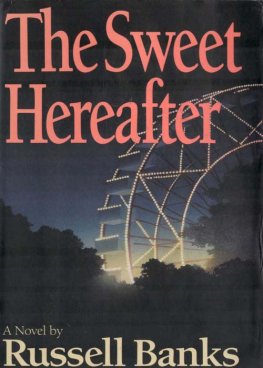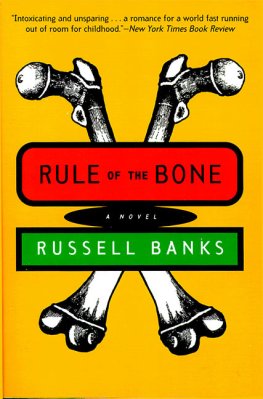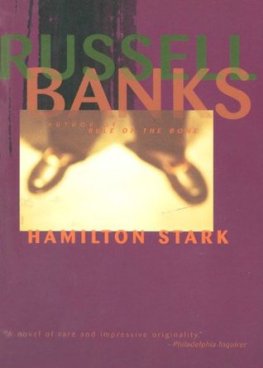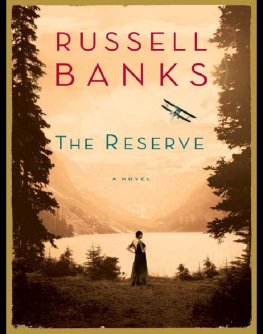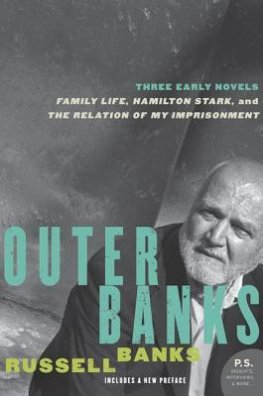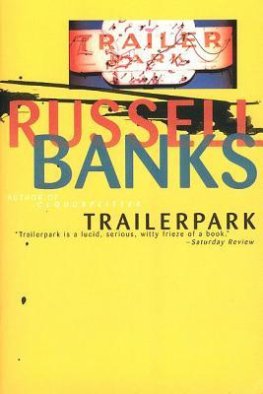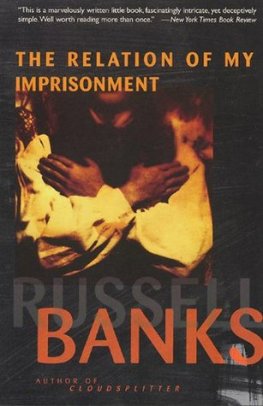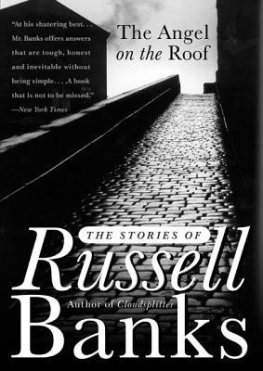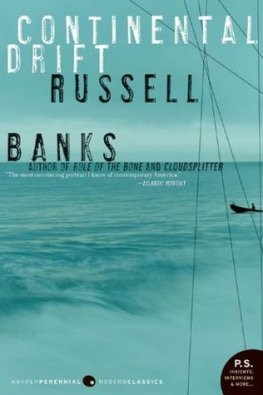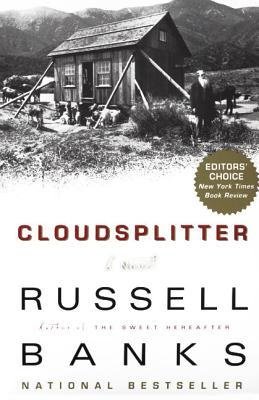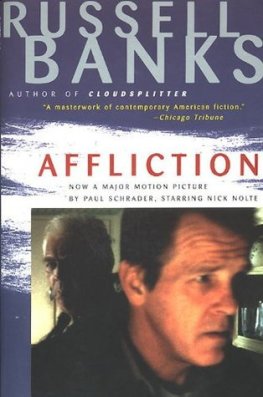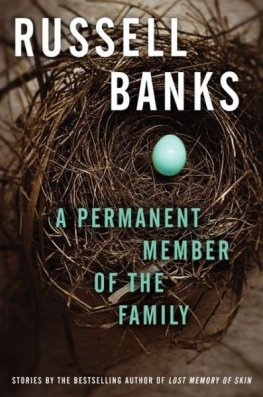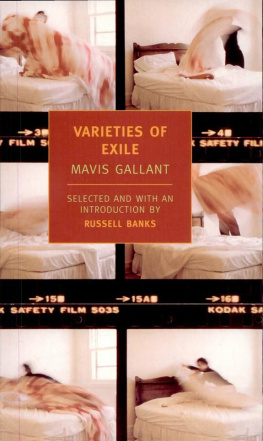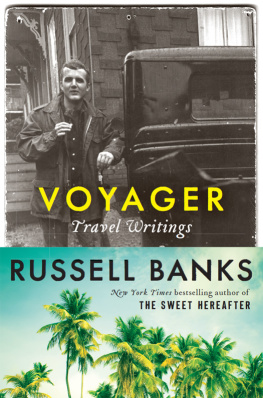Every angel is terrifying.
R ILKE , The Duino Elegies
For years, my mother told me stories about her past, and I didnt believe them, I interpreted them. She told me that in 1933 she had the female lead in the Waltham High School senior play and Sonny Tufts had the male lead. She claimed that he asked her to the cast party, but by then she was in love with my father, a stagehand for the play, so she turned down the boy who became a famous movie actor and went to the cast party instead on the arm of the boy who became a New Hampshire plumber.
She also told me that she knew the principals in Grace Metaliouss novel, Peyton Place. The same night the girl in the book murdered her father, she went afterwards to a Christmas party given by my mother and father at their house in Barnstead, New Hampshire. The girl acted strange, my mother said. Kind of like she was on drugs or something, you know? And the boy she was with, one of the Goldens, he got very drunk and depressed, and they left. The next day we heard about the police finding the girls father in the manure pile.
Manure pile?
She buried him there. And your father told me to keep quiet, not to tell a soul they were at our party on Christmas Eve. Thats why our party isnt in the book. Or the movie they made of it, either, she added.
She also insists, in the face of my repeated denials, that she once saw me being interviewed on television by Dan Rather.
I remembered these three stories in a cluster one day when, pawing through a pile of old newspaper clippings, I came upon the obituary of Sonny Tufts. Since my adolescence I have read two and sometimes three newspapers a day, frequently clipping an article that for obscure and soon forgotten reasons attracts me. I usually toss the clippings into a desk drawer, and later, often years later, Ill find myself reading through the clippings, throwing most of them out. It fills me with a strange sadness, a kind of grief for my lost self, as if I were reading and throwing out old diaries.
Id kept the obituary because Id liked the rough justice implied by my mothers story of having forsaken the now largely forgotten 1940s film actor, Sonny Tufts, for my father. She grew up poor and beautiful in a New England mill town, Waltham, Massachusetts, the youngest of the five children of a clockmaker whose wife died (choked to death on a pork chop boneanother of her stories) when my mother was nineteen. She was invited the same year, 1933, to the Chicago Worlds Fair to compete in a beauty pageant, but didnt accept the invitation, although she claims my father went to the fair and played his clarinet in a National Guard marching band. Her father, she said, made her stay in Waltham that summer, selling dresses for Grover Cronins department store on Moody Street. If her mother had not died that year, she would have been able to go to the fair. And who knows, she joked, you mightve ended up the son of Miss Chicago Worlds Fair of 1933. Thats the reason I liked my mothers stories, and why I wanted to believe them: she let me think they were about me.
The truth is, I dont know much about her life before 1940, the year I was born and started gathering material for my own stories. Like most people, I have paid too little attention to the tales Ive been told about the lives and events in my family that precede the remarkable event of my own birth. Its the same with my children. I watch their eyes glaze over, their attention drift on to secret plans for the evening and weekend, as I point out the second-floor tenement on Perley Street in Concord, New Hampshire, where I spent an especially painful chunk of my childhood. Soon it will be too late, I want to say. Soon all youll have of me will be your diluted memories of my stories about my life before you were born.
The death of a parent is a terrible thing, but because our parents usually have not been a part of our daily lives for years, most of us do not really miss them when they die. When my father died, though I had been visiting him at his house on Sunday mornings once every six or eight weeks, I did not miss him. For a decade, he had not been a part of my day-to-day life. Yet his death, unexpectedly, was for me a terrible thing and goes on being one now, twenty years later. This is why, I think: my father, a depressed, cynical alcoholic from an early age, did not tell stories. Sadly, if he had told themabout his childhood in Nova Scotia, about stepping on Sonny Tufts in the courtship of my mother, about playing the clarinet at the Chicago Worlds FairI would not have listened. No doubt, in his cynicism and despair of ever being loved by me or anyone else, he knew that. The only story my father told me that I listened to closely, visualized, and have remembered, he told me a few months before he died. It was the story of how he came to name me Russell. Naturally, as a child I had asked, and he had simply shrugged and said he happened to like the name. My mother corroborated the shrug. But one Sunday morning, the winter before he died, three years before he planned to retire and move to a trailer in Florida, I was sitting across from my father in his kitchen, watching him drink tumblers of Canadian Club and ginger ale, and he wagged a finger in my face and told me that I did not know who I was named after.
I thought no one.
No. When I was a kid, he said, my parents tried to get rid of me in the summers. They used to send me to stay with my uncle Russell up on Cape Breton. He was a bachelor and kind of a hermit, and he stayed drunk most of the time. But he played the fiddle, the violin. And he loved me, Russell. Yes, indeed, he loved me. And he was quite a character. But after I was about twelve and old enough to spend my summers working, my parents kept me down in Halifax. And I never saw Uncle Russell again.
He paused and sipped at his drink. He was wearing his striped pajamas and maroon bathrobe and carpet slippers and was chain-smoking Parliaments. His wife (his fourthmy mother, his first, had divorced him when I was thirteen, because of his drinking and what went with it) had gone to the market as soon as I arrived, as if afraid to leave him without someone else in the house. He died a few years later, my father said. Fell into a snowbank. Passed out. Sonofabitch froze to death.
I listened to the story and have remembered it all these years after, because I thought it was about me, my name, Russell. My father told it, of course, because for a few moments that cold February morning he dared to hope that he could get his eldest son to love him for it. His story was a prayer, like all good stories, but it went unanswered. The one to whom he prayednot me, but an angel on the roofwas not listening. At this moment, as I write this, I do love him for the story, but its too late for the saying to make either of us happy.
After my father died, I asked his sister Edna about poor old Uncle Russell, the fiddler hermit from Cape Breton who froze to death in a snowbank. She said she never heard of the man. The unofficial family archivist and only a few years younger than my father, Aunt Edna surely would have known of him, would have remembered how my father spent his early summers, would have heard of the man he loved enough to name his firstborn son after.
The story simply was not true. My father had made it up.
Just as my mothers story about Sonny Tufts was not true. When I came upon the obituary for Sonny Tufts from The Boston Globe, dated June 8, 1970, and written by George Frazier, a journalist with a weakness for the lives and deaths of Social Registrants, I remembered her story freshly and knew why Id clipped the article years earlier, read it quickly, and kept it for a later look. The title was Death of a Bonesman, which meant, of course, that Tufts had gone to Yale and had been tapped for Skull and Bones. Unusual, I thought, for a man in that era to have graduated from Waltham High School and gone to Yale and become a Bonesman. Rather than toss it back in the drawer for another decade or into the wastebasket, I read it through this time to the end, as if searching for a reference to my mothers having brushed him off after the senior play. Instead, I learned that Bowen Charlton Tufts III, scion of an old Boston banking family, had prepped for Yale not at Waltham High, but at Phillips Exeter. His closest connection to the daughter of a Waltham clockmaker, and to me, was probably through his fathers banks ownership of the building where the clockmaker had his shop.


